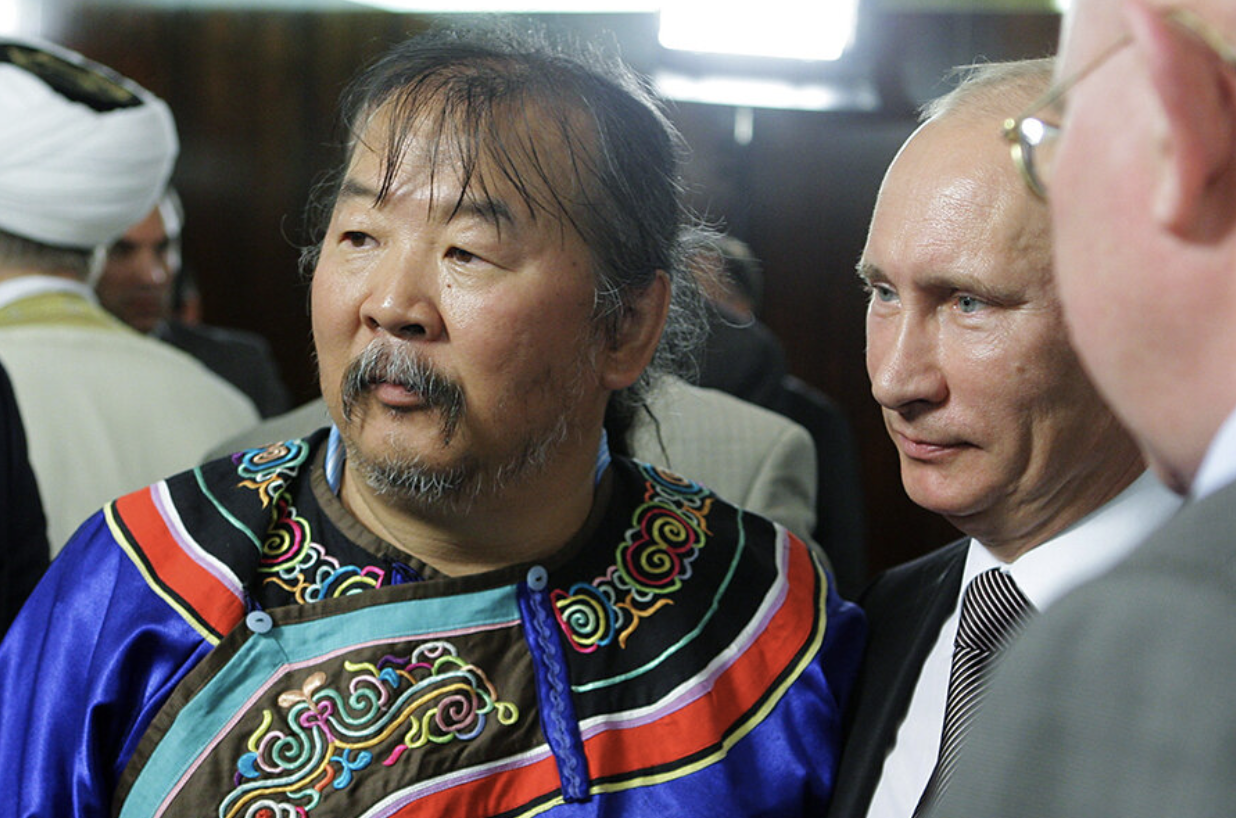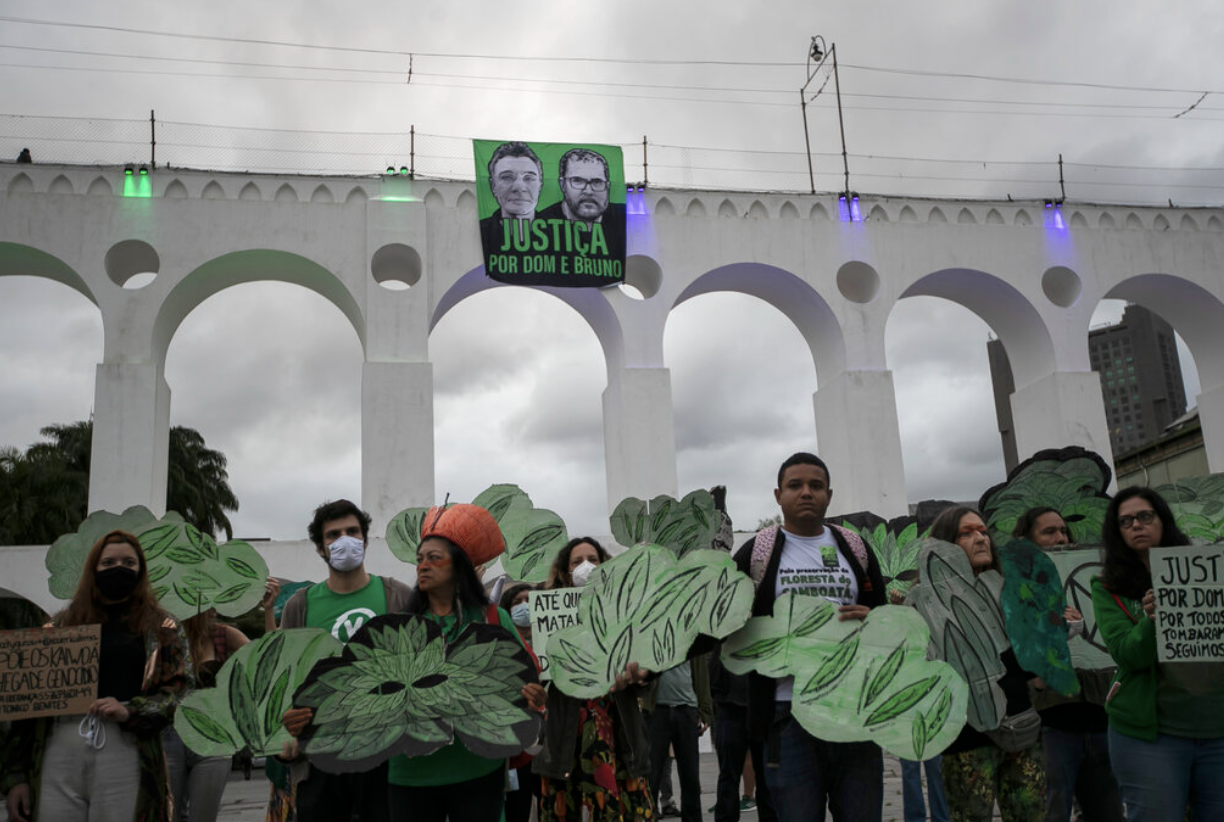Indigenous Activists at NYC Climate Event Demanded Self-Determination
Pavel Sulyandziga, speaker at the event, with Russian President Vladimir Putin in 2011. Source: Alexei Druzhinin/AP Photo, RIA Novosti
With the COP27 climate change conference only months away, an international group of indigenous rights activists demanded “indigenous self-determination” from businesses and governments in the face of the growing green economy. The hybrid event, held as part of Climate Week NYC at The People’s Forum, also featured musical performances, food, storytelling, and spiritual ceremonies.
“We want to make sure indigenous communities can create conditions for businesses to realize it's not advantageous to them to violate indigenous communities,” said Pavel Sulyandziga, chairman of the Batani Foundation and member of the Udege people of eastern Russia. Sulyandziga, the event’s co-host, stated last Tuesday that his organization works with governments, businesses, shareholders and consumers to mitigate the negative effects that efforts toward sustainability can have on indigenous communities worldwide.
One pertinent example is the extraction of rare minerals for the manufacture of so-called environmentally-friendly products like electric car batteries. Sulyandziga worked to educate Tesla and other companies on best practices for preserving the natural landscape, encouraging them to work closely with native peoples, saying, “people who live on those lands must also benefit from the green economy of today and tomorrow.”
Sovereignty over the land is important for many indigenous groups. Galina Angarova, the panel’s other co-host and executive director of Cultural Survival, called separation from ancestral land “the original trauma” of native populations. Calling on panelists to explain what ‘land back’ means to them, Angarova answered her own question: “it means everything”.
“Businesses and governments were not just living in different countries than the indigenous communities, they were living on different planets,” said Sulyandziga, referring to his time as chair of the UN Working Group on Business and Human Rights. For Sulyandziga, a reconciliation between the two sides and acknowledgement of dual responsibility is key.
“There are two keys that will solve the problem,” he said. “One key is held by the government and we have the other key as indigenous peoples. If one of those keys doesn't work, the problem will remain unresolved.”
Not all present agreed with Sulyandziga. Samuel Flores, representing indigenous groups of Bolivia, said, “we have not negotiated our rights with the Bolivian state because we see the states do not respect our human rights.” Flores is currently presenting a case against the country’s government before the Inter-American Court of Human Rights, having met with the UN’s Organization of American States.
“If there is no justice for our people through [international courts], our peoples are going to rise up,” he said. “Our rights are non negotiable … may all ancestral nations be free, independent, in the way we have been before the states were created.”
Protest in Rio de Janeiro, Brazil, June 2022. (AP Photo/Bruna Prado)
In any case, all seemed to agree that solidarity among indigenous peoples worldwide is the way forward. “We lack resources: administrative resources, human resources, financial resources; but we have our strength as in solidarity,” said Sulyandziga.
Angarova, a native of the Buryat people of Siberia, added, “this work is only possible when we are together as indigenous peoples supported by our allies. The more people the better: we cannot do this alone.”
Angarova’s organization plans to attend both the COP27 climate change conference and the UN Forum on Business and Human Rights in November. “The future is indigeous,” she exclaimed at the close of the event. “Hope is a muscle. We have to exercise it every day.”


